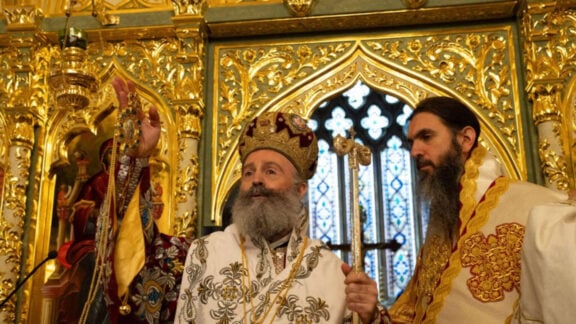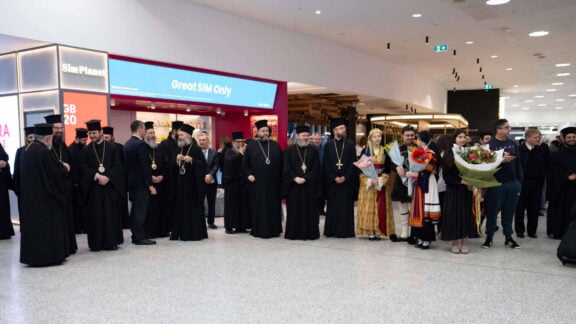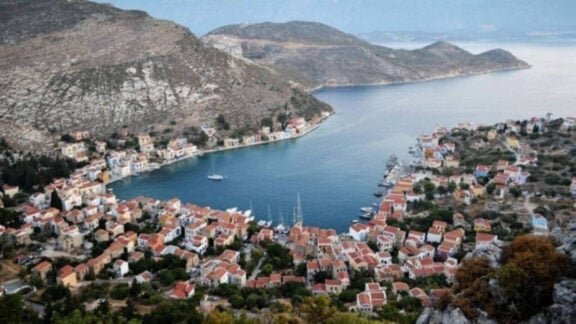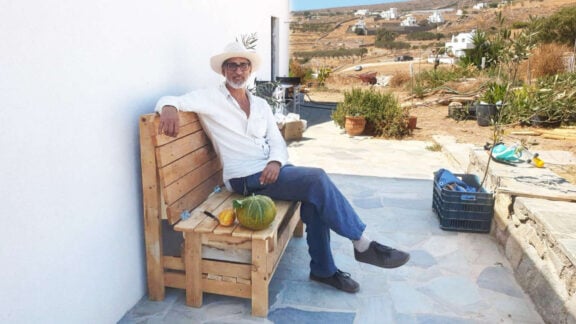On December 14, the Conservative Lord Lexden, formerly Alistair Cooke, a rose in the House of Lords to “ask His Majesty’s Government what assessment they have made of proposals to loan the Elgin Marbles to Greece?”
Lord Lexden said that the “Elgin marbles—or Parthenon sculptures, as some prefer” are famous for two reasons.
He said that the first reason “is of course because they are magnificent treasures of civilization, part of the heritage of our world.
“The second reason that they are famous is as regrettable as it is persistent. These great treasures have an almost infinite capacity to provoke heated arguments about their ownership and their location.”
On behalf of the British Committee for the Reunification of the Parthenon Marbles (BCRPM) Lord Lexden thanked Baroness Chakrabarti for her input and said that regardless of arguments about legality, past or present, “the British people know better than too many of their leaders how to make friends by being the bigger person.”
” Most of them support returning the artefacts to the people to whom they mean so much more.
“A few minutes, let alone hours, at the Acropolis Museum in Athens would lead any noble Lord to understand just how much these artefacts mean to the people of Greece,” Lord Lexden said.
He said that few people “have been fooled by years of buck-passing between museum and government around this issue”, especially as he said that the “technological advancement should make sharing and return so much easier than ever before.”
He then thanked Lord Dubs, “whose support for our campaign stretches back to when Eddie O’Hara was our Chair,” and underscored some of the “pertinent points” made by Lord Dubs such as, “the argument about loaning or returning them.”
” I appreciate that there is a difficulty because of the 1963 Act. Nevertheless, I think the right answer, in the fullness of time, will be to return the marbles to their rightful place in Athens.”
“If it needs a change in legislation, that could be achieved—but, for heaven’s sake, we cannot forever fall out with our Greek friends on this issue.”
He also thanked Lord Allan of Hallam for pointing out “that there are new stories waiting to be made, and remembering our founder, Eleni Cubitt.”
“Artefacts also add new elements to their stories over time; this is especially true for the Parthenon sculptures,” Lord Lexden said that the Sculptures’ “story now includes Melina Mercouri, who kicked off that campaign 40 years ago, and Eleni Cubitt, who ran the UK campaign for their return over many years.”
He then chided prime minister, Rishi Sunak, who he said had “now become part of the story,” after the British prime minister he recently cancelled a meeting with the Greek prime minister Kyriakos Mitsotakis over the marbles.

A move which seemed poorly calculated and brought rebuke from the opposition Labour leader Keir Starmer who said the British PM had, “lost his marbles”.”The Greek prime minister came to London to meet him, a fellow NATO member… one of our most important partners in tackling illegal immigration.”Instead of discussing serious issues Starmer said, Sunak, “tried to humiliate him [Mitsotakis] and cancelled at the last minute.”
He then went on to prompt George Osborne, the British Museum’s director, and former Tory Chancellor of Exchequer, by suggesting he could be “an even bigger figure if he leads the trustees to agree to some form of display in Athens.”
“It is certainly my hope that we will find a way to have the entire set of sculptures singing their story out from the new Acropolis Museum, while the British Museum continues to tell its rich stories through other fabulous Greek objects from its own collection or from loans.”
He read a statement from Lord Frost who he said received most of the coverage in the UK media as he voiced his personal view:
“Personally, I have never been so convinced by the moral, artistic and cultural arguments for the position we take.
“The Parthenon marbles are a special situation, and we should try to find a special solution. They are one of the supreme expressions of ancient Greek, hence western, art.
“They were created for a specific building and a specific cultural context. In contrast to much ancient sculpture, we know exactly what that context was and what the work of art was intended to signify.
“These are not just random museum exhibits and, for as long as they are not seen as a whole, they are less than the sum of their parts.”
Lord Lexden concluded that his ” personal view is that it is a time for a grand gesture, and only the Government can make it.”
“Indeed, the magnanimous gesture called for by so many over such a long period of time has yet to find a UK Prime Minister to support it.
“Whilst the public support grows, the political will at the top remains fixed.”
“Most of the voices yesterday afternoon in the House of Lords accepted that there was a unique case in the division of these sculptures.
“With many supporting the reunification.”
Lord Lexden urged “more voices to join these right-thinking folks on a matter of cultural heritage that deserves our collective respect. Greece’s ask is wholly justified.”









